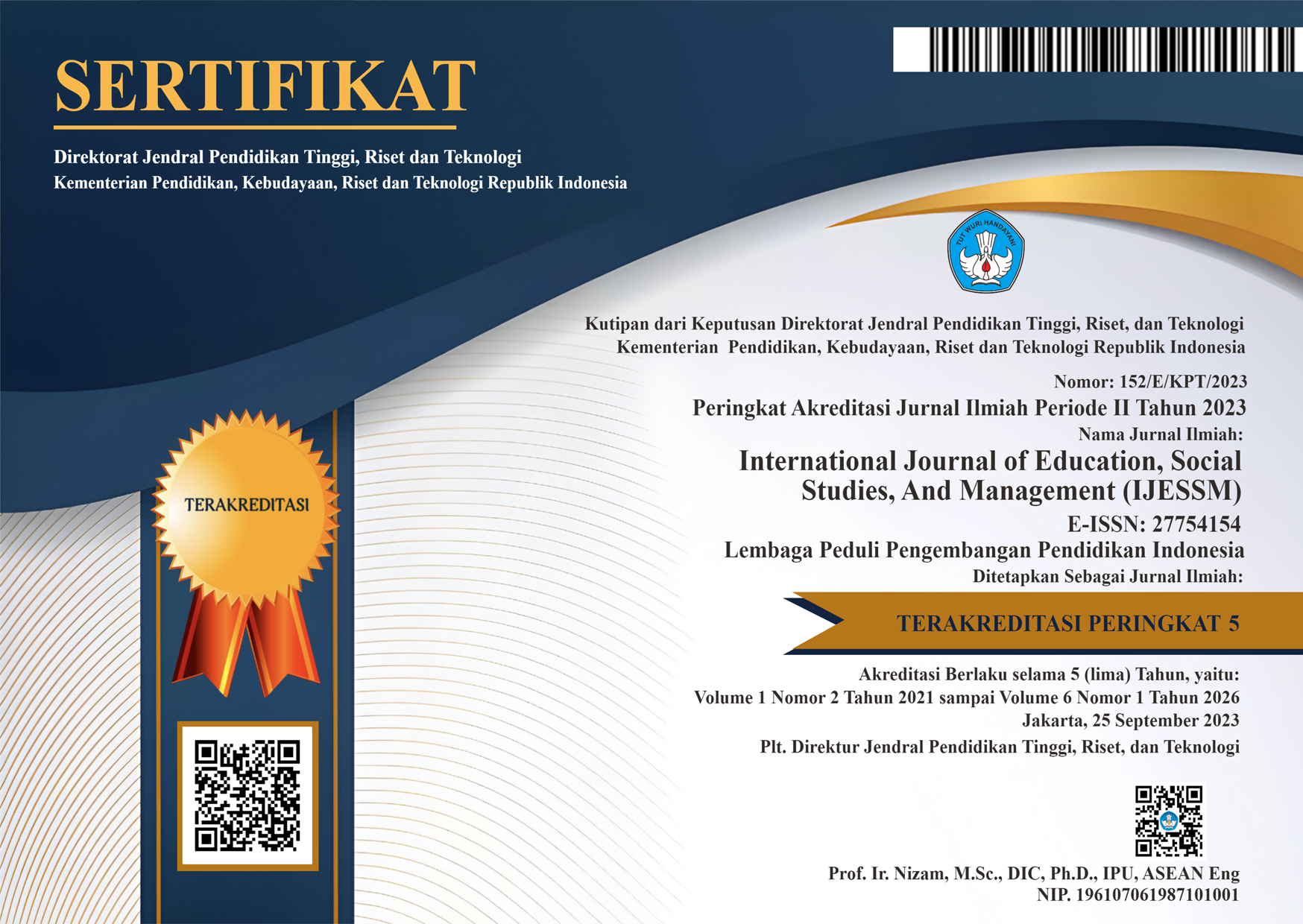The Correlation Between Interpersonal Communication and Optimism With Adversity Quotient for Non-Permanent Employees of the Medan Tourism Polytechnic
DOI:
https://doi.org/10.52121/ijessm.v4i2.335Keywords:
Interpersonal Communication, Optimism, Adversity QuotientAbstract
This study aims to determine The Correlation between Interpersonal Communication and Optimism with Adversity Quotient for Non-Permanent Employees of the Medan Tourism Polytechnic. The hypothesis proposed is there is a correlation between Interpersonal Communication and Optimism with Adversity Quotient for Non-Permanent Employees of the Medan Tourism Polytechnic. The sample in this study amounted 65 respondents. The sampling technique using total sampling. The data collection method is a Likert scale of interpersonal communication, optimism, and adversity quotient. Data analysis uses multiple linear regression analysis models. The results of this study are: 1. There is a positive and significant correlation between interpersonal communication and adversity quotient. This is indicated by the correlation coefficient (R) = 0.407 with p = 0.001 <0.05. Based on the results of this study, the first proposed hypothesis was declared accepted. 2. There is a positive and significant correlation between optimism with adversity quotient. This is indicated by the correlation coefficient (R) = 0.461 with p = 0.000 <0.05. Based on the results of this study, the second proposed hypothesis was declared accepted 3. There is a positive and significant correlation between interpersonal communication and optimism with adversity quotient. This is indicated by the correlation coefficient (R) = 0.626 with p = 0.000 <0.05. Based on the results of this study, the third proposed hypothesis was declared accepted. It is known that the subjects of this study, Non-Permanent Employees of the Medan Tourism Polytechnic have high interpersonal communication, low optimism, and low adversity quotient.
Downloads
Published
How to Cite
Issue
Section
License
Copyright (c) 2024 International Journal Of Education, Social Studies, And Management (IJESSM)

This work is licensed under a Creative Commons Attribution 4.0 International License.

















